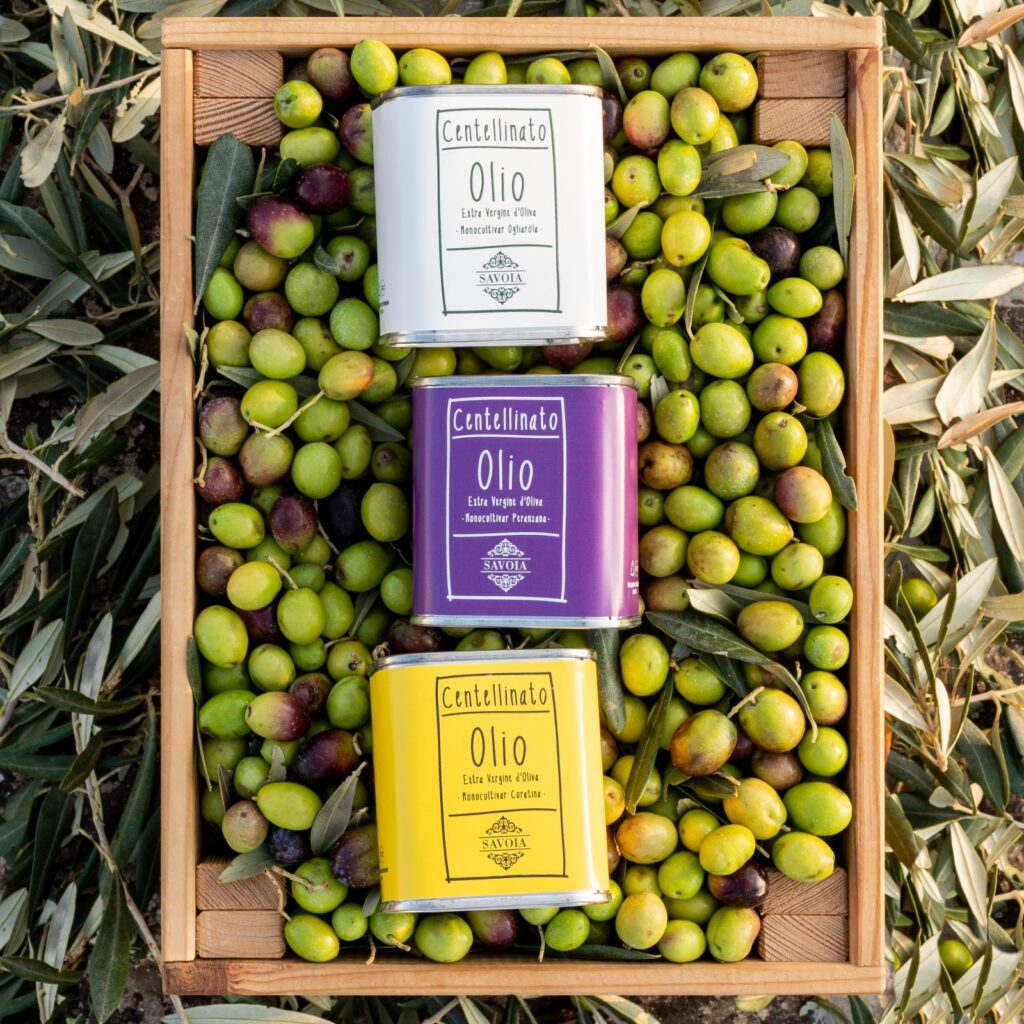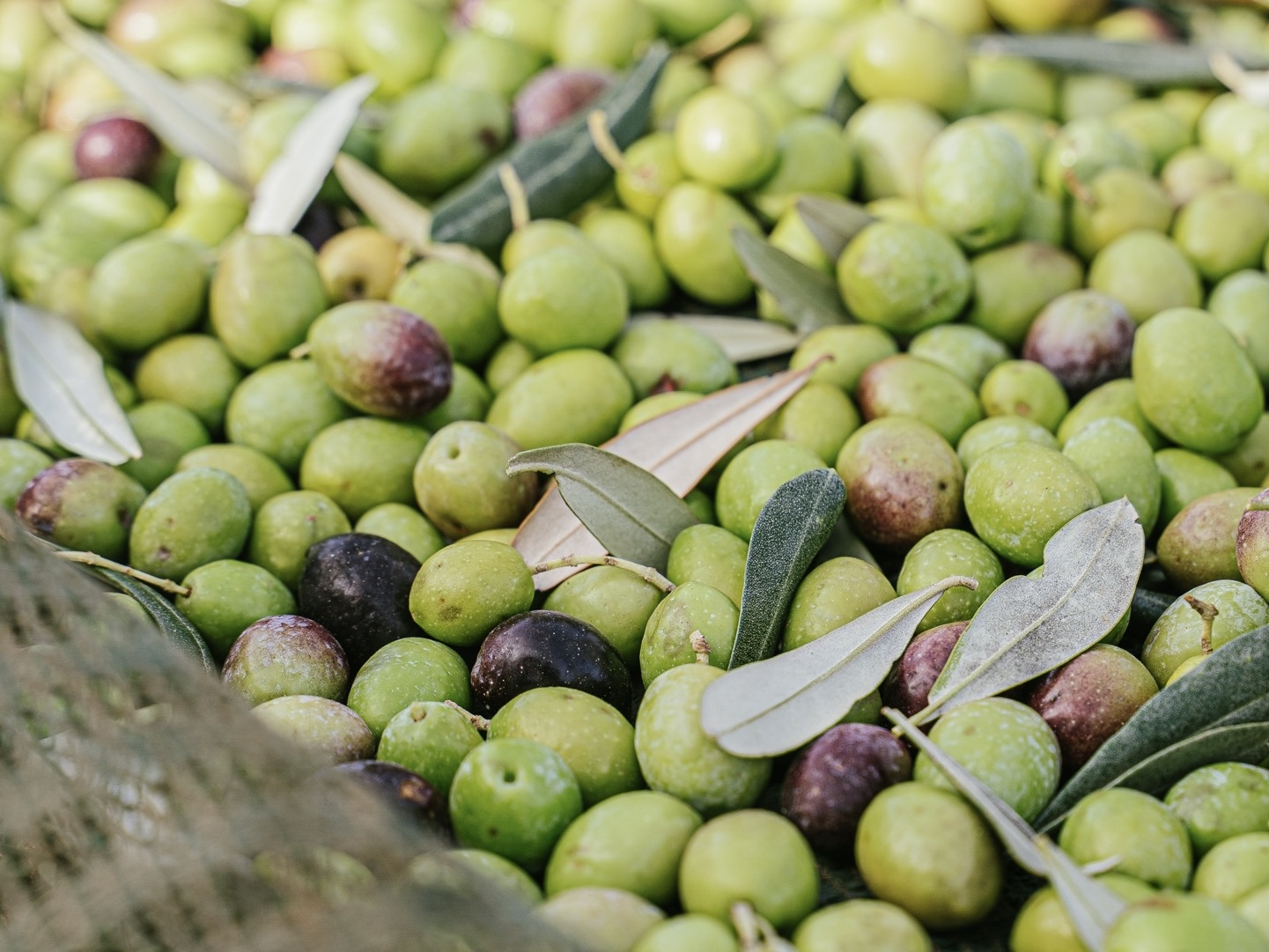Where to taste extra virgin olive oil in Puglia
One of the first things you notice when you arrive in Puglia is that we are surrounded by olive trees. Everywhere. With around 60 million trees, some of them thousands of years old, olives are the lifeblood of our landscape, culture and cuisine. Puglia produces about 40% of Italy’s olive oil, and in strong years upwards of 300,000 tons. From the monumental groves of Fasano to the sunburnt fields of Salento, olive oil has shaped our economy, our traditions, and even our identity.
And that’s why tasting some of Italy’s finest extra virgin olive oils is high on the list of many visitors to Puglia. It’s a real and authentic experience, something to remember your trip to Puglia by — each and every time you reach for your Italian extra virgin olive oil (from Puglia, of course) back home in your own kitchen!
There are many places to taste olive oil in Puglia, but one stands out for us: Frantoio Savoia in Pezze di Greco, Fasano. Set within Masseria Pezze d’Aglio, an 18th-century farmhouse surrounded by sixty hectares of olive groves, the Savoia family produce award-winning extra-virgin olive oils that bridge past and present. Visitors can walk among monumental olive trees, step inside a medieval underground mill, explore an oil museum in a dramatic cave — before sitting down to taste the oils themselves.
The Puglia Podcast
It’s October, and we are just about to begin the olive harvest — one of the most important times of the year in Puglia. The arrival of new oil, freshly pressed and full of flavour, marks the moment when centuries of tradition and hard work come together in the groves and the mills.
What better time to take part in an olive oil tasting? We visit Frantoio Savoia in Pezze di Greco, Fasano to taste their award winning olive oil, with family member and guide, Rosaria Pace.
The Puglia Podcast is also available from Apple Podcasts, Spotify and wherever else you get your podcasts from.
* In this episode we reference Italy as the world’s 2nd top extra virgin olive oil producer. Typically it is, but in 2024/25 Greece is expected to increase its production to 250 thousand tons (+43%), surpassing Italy, where it is expected to obtain only 240 thousand tons (-27%). Information from l’Olivo News.
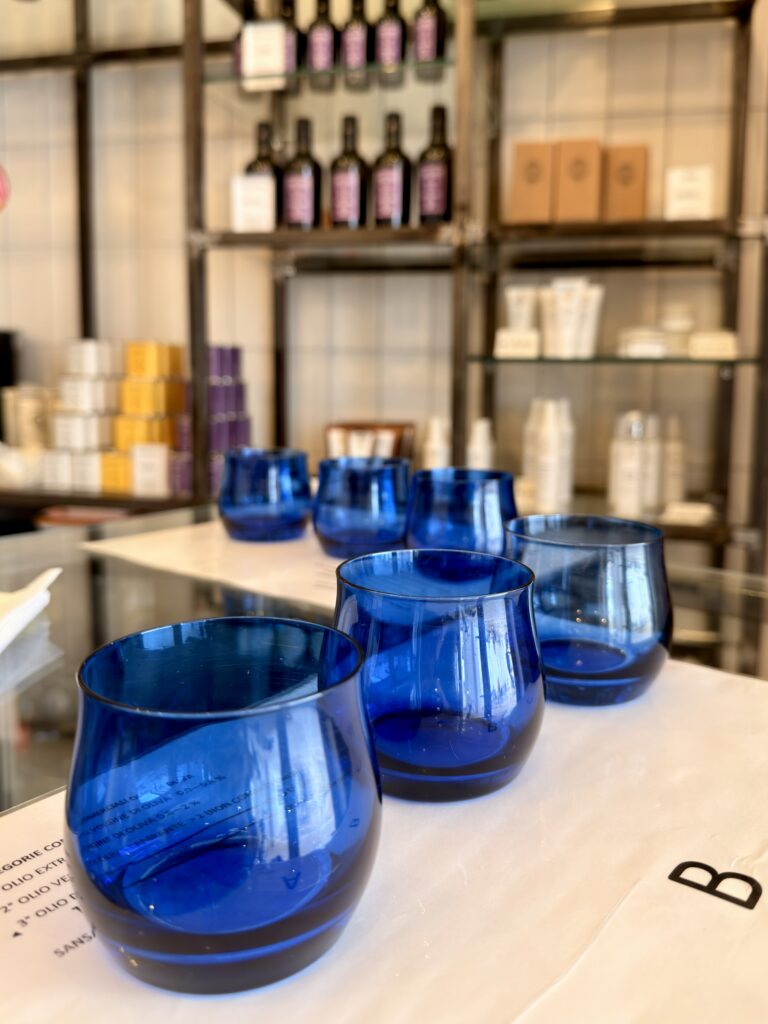
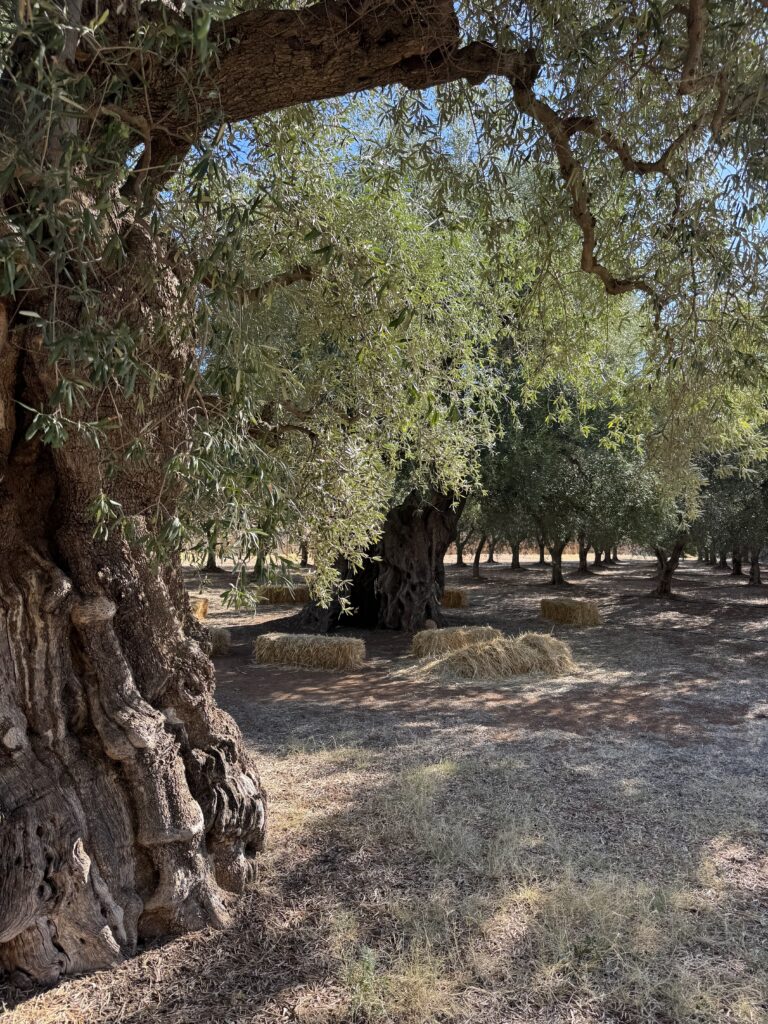
We’ve been to plenty of olive oil tastings across Puglia. Some feel like the guides are simply going through the motions. Rosaria’s tasting tour stood out for us. Rosaria is engaging, enthusiastic, and clearly passionate about what she does. She drew us in.
Having married into the Savoia family, she has also married into their tradition. Her husband Giorgio, the agronomist, and her brother-in-law Marco represent the current generation of the Savoia family, working alongside other members to tend the groves and oversee production. Rosaria brings their work to life with warmth and humour, making every tasting feel personal — and educational.
The oils we tried here were diverse, well-rounded and, at times, surprising. Bold and peppery, soft and fruity, each one told a story of place and variety. That combination of quality, heritage and Rosaria’s infectious enthusiasm is why we recommend Frantoio Savoia as our favourite choice for tasting olive oil in Puglia.
Visit Frantoio Savoia’s website for more information about Frantoio Savoia, their olive oils and to book the oil mill visit and extra virgin olive oil tasting tour. Or you call follow them on Instagram.
Extra virgin olive oil production at Frantoio Savoia
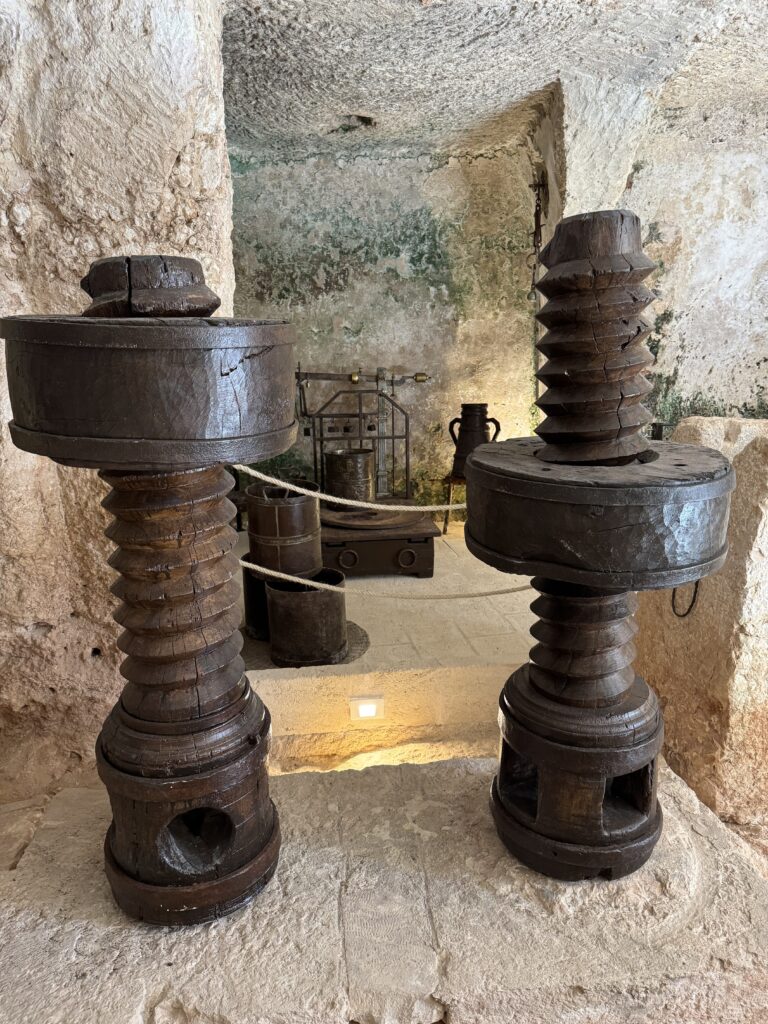
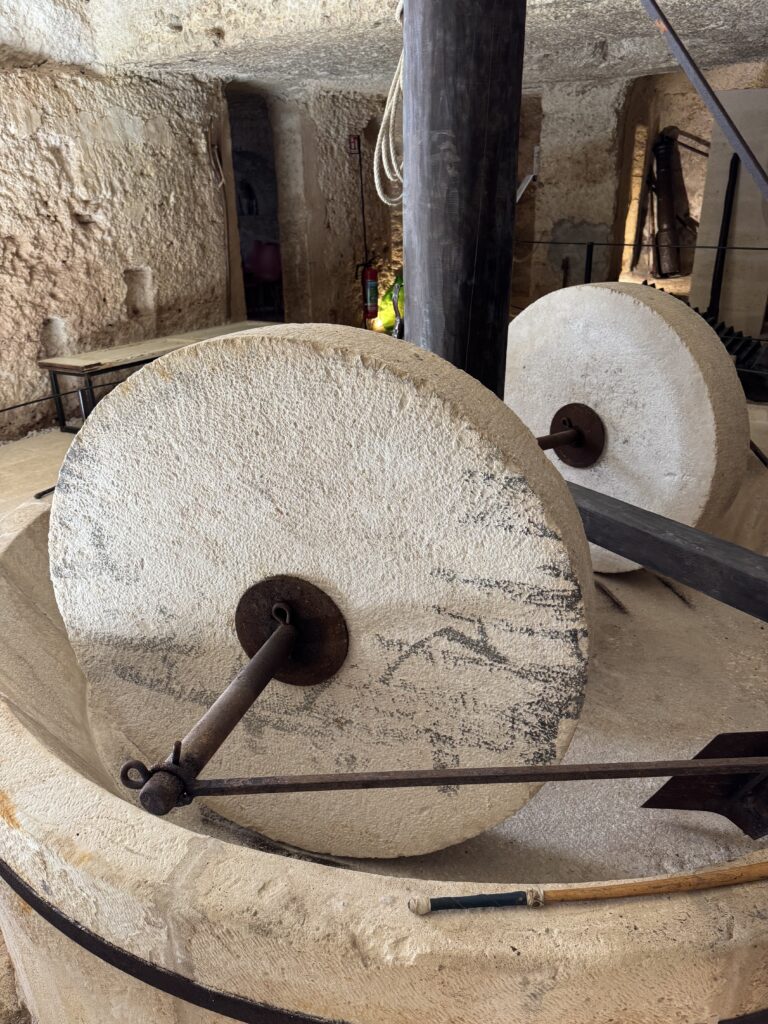
Set within Masseria Pezze d’Aglio, Frantoio Savoia lies in the heart of the Piana degli Ulivi Monumentali — the Plain of the Monumental Olive Trees — a landscape that stretches between Ostuni, Fasano, Monopoli and Carovigno. Here, ancient olive trees rise from the red earth like sculptures, their twisted trunks shaped by centuries of wind and sun. Some are thousands of years old (the oldest known in Puglia, “Lu Matusalemme” in Borgagne near Melendugno, Lecce province is believed to be over 3,000 years old). It’s this living heritage that frames the Savoia family’s groves — a reminder that every drop of oil produced here is rooted in history as deep as the trees themselves.
The story of Frantoio Savoia begins deep underground, in a medieval rock settlement where the first oil mill was carved into stone. Above it stands Masseria Pezze d’Aglio, a farmhouse dating back to the 1700s. Since 1909, it has been the home of the Savoia family, who today cultivate sixty hectares of land with around 10,000 olive trees, including 2,500 centuries-old giants. Among the cultivars here are some of Puglia’s finest: Ogliarola, Leccino, Coratina, Peranzana, Frantoio and Picholine.
The path to high-quality oil begins in the groves. Olives are harvested directly from the trees, either by hand or with mechanical tools, to protect the fruit and preserve its nutritional properties. Gathering bruised olives from the ground may be easier, but it produces inferior oil.
From the grove the olives are carried in small boxes straight to the mill — only metres from where they were picked. This short journey is vital, ensuring the fruit is pressed within hours of harvesting. Once inside, the olives are carefully selected, weighed, and washed before being ground slowly with a crusher. Low-speed crushing prevents the paste from overheating, which would otherwise damage its natural aromas.
Then comes the most delicate stage: malaxation (a slow kneading). The olive paste is gently mixed, allowing tiny droplets of oil to merge and release the full spectrum of flavours and aromas. If the paste is kneaded for too long or at too high a temperature, the quality falls and those precious aromas are lost.
Next, the oil is extracted using a centrifugal decanter, which separates it cleanly from the pomace and water. A final spin in a separator removes any last traces of water and sediment. The oil is then stored in stainless steel tanks where nitrogen replaces the air, protecting it from oxidation.
The result is what makes Puglia’s extra virgin olive oil so remarkable: an oil that is fresh, aromatic and true to its fruit, crafted with care at every stage.
